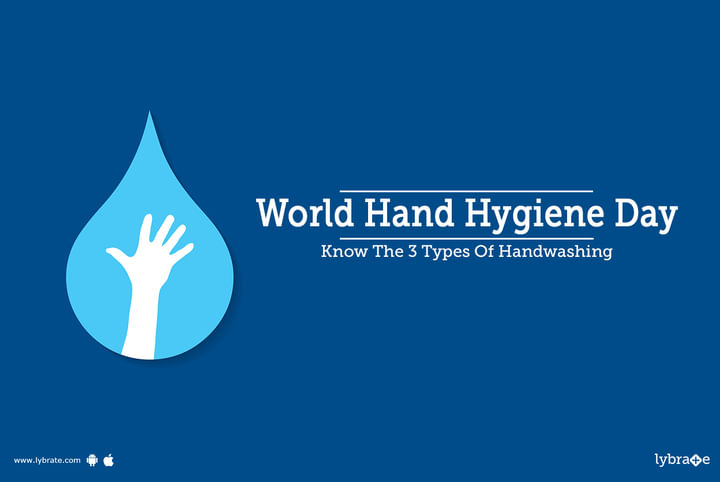World Hand Hygiene Day: Know The 3 Types Of Handwashing
Every year, World Handwash Day is marked on 5th of May to raise awareness about the need for handwashing. This year's theme will urge individuals to clean their hands at regular intervals and with the right products, realizing that we can contribute to a facility's environment or culture of safety and quality by cleaning our hands.
Handwashing with soap is one of the most simple and cost-effective ways to keep germs at bay and prevent infectious illnesses from spreading. The current COVID outbreak serves as a reminder that washing hands with soap on a daily basis will help prevent the spread of diseases that can lead to death.
What Are The Most Common Hand Washing Methods?
Hand washing is the procedure of cleaning one's hands with soap or similar non-corrosive material that can help in the removal of germs. It is the most basic and necessary precaution that humans may and must take to maintain their cleanliness and hygienic conditions. Handwashing with antibacterial soap can help prevent infection and the spread of new hazardous microbes that can spread from one person to the next, causing a chain of illnesses and problems.
Any of the following methods of hand hygiene can be used to maintain hand hygiene:
Regular Hand Washing
This is the process of carefully cleaning one's hands with simple water or antibacterial soap to remove dirt, filth, soil, or other minute organisms that may be present.
Hand Cleanse With Antiseptic
In light of the COVID outbreak, the Indian government, as well as governments throughout the world, have been emphasizing the usage of alcohol-based hand rubs wherever water and soap are unavailable. These hand rubs or sanitizers eliminate germs and disease-carrying viruses, preventing them from spreading.
Hand Wash With Antiseptic
This form of hand hygiene entails enabling a person to use water and antibacterial handwashes (such as iodine, triclosan, and PCMX) to destroy microorganisms on the hands as well as the flora that may contribute to the transmission of these germs.
Apart from that, one more form of handwashing is considered a crucial part of our lives. Even though it is not used by laymen, this is helpful to maintain hygiene at medical facilities and post-surgical procedures. Surgical antiseptics are identical to that of an antiseptic handwash, although it requires more time to complete. This procedure, which is commonly followed and maintained by doctors prior to, after, and in between patient check-ups, guarantees that germs are not transmitted from one patient to another.



+1.svg)
